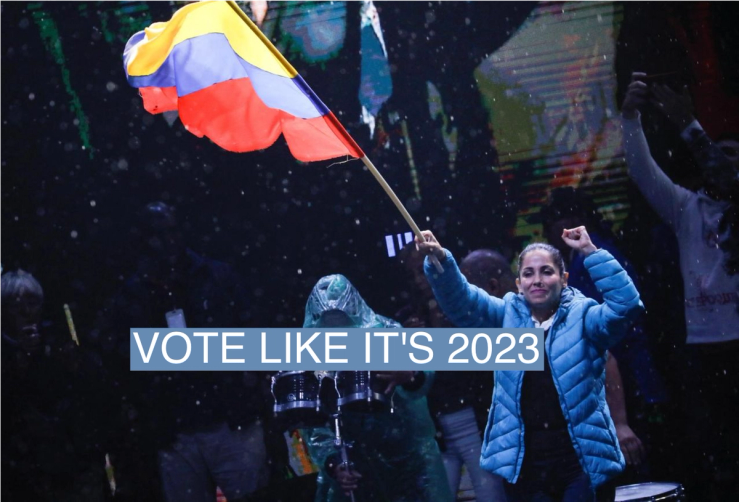The News
This weekend marks the start of a year of momentous elections worldwide, with at least a quarter of the global population headed to the polls over the next eight months or so.
In Ecuador, leftist Luisa González will compete against former lawmaker and son of a banana tycoon, Daniel Noboa, in presidential elections marred by violence and growing dissatisfaction in democratic institutions.
In New Zealand, the incumbent Labour Party, once led by Jacinda Ardern, is expected to lose against a right-wing bloc over frustrations with the rising cost of living.
In Poland, opinion polls suggest that neither of the two parties up for parliamentary elections — the right-wing populist Law and Justice party or the center-right Civic Coalition — can win enough seats to form a new government.
In the next year or so, India, Indonesia, Pakistan, Russia, Taiwan, Ukraine, the European Parliament, the U.K., and the U.S. will also hold either parliamentary or presidential elections that could change the course of each country’s future.
SIGNALS
Nationalist populism will be a common feature in upcoming elections across the four largest territories in the world, writes Adriano Bosoni from risk intelligence firm RANE. Should he choose to run for another term, Russian President Vladimir Putin will ensure that opposition voices will be silenced to allow for the Kremlin’s continued centralization of power. Despite pushback from the country’s large Muslim minority, Indian Prime Minister Narendra Modi is expected to “double down” on Hindu nationalist rhetoric to mobilize voters. Polls across the E.U. suggest that amid high inflation and low economic growth, far-right parties vowing to promote protectionist measures will do well. And in Washington, a Republican win could see broader and more aggressive action toward China, and waning support for Ukraine.
The overwhelming global shift toward the right is bad news for climate mitigation. In a survey of 14 of the richest countries conducted by Pew in 2022, people on the political right were less likely to see climate change as a major threat than those on the left. In rich democracies such as the U.S., divisions over climate are aggravated by populist politicians who exaggerate the cost and disruption of green policies, the Economist reports.



